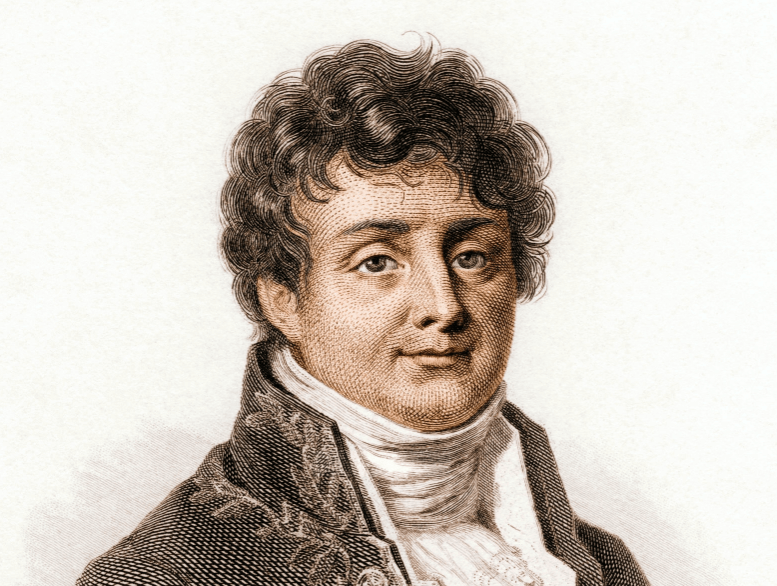Who was Joseph Fourier? Information on French mathematician and administrator Joseph Fourier biography, lifer story, works and Fouries series.

Joseph Fourier (Source : wikipedia.org)
Joseph Fourier; (1768-1830), French mathematician and administrator, who is famous as the creator of Fourier series. Fourier was born in Auxerre on March 21, 1768, the 19th child of a tailor. Orphaned at eight, he was educated in the Benedictine school at Auxerre, where he discovered his interest in mathematics. His thoughts of becoming a monk were ended by the French Revolution: he was a student at the École Normale in Paris in 1794 and became assistant professor at the founding of the École Polytechnique in 1795.
In 1798, Fourier accompanied Napoleon on his campaign in Egypt, where in addition to many administrative appointments he also served as secretary of the Institut d’Égypte. He suggested the preparation of a record of French discoveries in Egypt, to which he made noteworthy contributions; it appeared as the Description de l’Êgypte between 1809 and 1828. After his return to France he was made Prefect of Isère in 1802. He served with great distinction for 13 years, being elected to a barony in 1808. In 1815, Napoleon, returning from Elba, made Fourier Prefect of the Rhône department, but Fourier resigned before the end of the Hundred Days in protest against Napoleon’s regime.
Fourier spent the rest of his life in Paris. His Napoleonic past made it difficult for him to find employment, but in 1817 he was elected to the Académie des Sciences, and in 1822 he became perpetual secretary for mathematical sciences. He died in Paris on May 16, 1830.
Work:
Fourier’s most important achievements were concerned with heat diffusion and with the mathematical techniques that he developed in its study. He introduced the “diffusion equation” to express the movement of heat within a body, and then the important novelty of a separate equation to deal with heat movement on the surface. In solving the diffusion equation, he discovered, as a means of relating the full solution to the boundary values (the temperatures of the surfaces of the body) the Fourier series representation of a mathematical function.
Fourier presented his results to the Académie des Sciences in a long paper in December 1807. The controversial nature of Fourier series led to its rejection by Joseph Louis Lagrange, who had in his own work rejected such series. However, a prize problem in the subject was set for 1812, and Fourier won the prize with a new edition of the paper which included also the “Fourier integral” for heat diffusion in infinite bodies. Again publication was delayed; so Fourier prepared a third version as La théorie analytique de la chaleur ( 1822; Eng. tr., The Analytical Theory of Heat, 1878). His work, especially Fourier series, became immensely influential in mathematical physics, theoretical astronomy, and engineering, and it had great impact in pure mathematics, where it led to revised formulations of functions, series, and integrals.
In addition to further studies of heat, Fourier spent his last years on a work reflecting his lifelong interest in the theory of equations. His most important results were the inductive proof (which he found in his teens) of Descartes’ rule f signs, and others anticipating the modern interest in linear programming. Only some parts of this work were fit for posthumous publication, as Analyse des équations déterminées (1831).